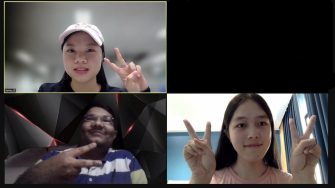UNSW team qualify for world finals of International Collegiate Programming Contest
UNSW student team Celestial Interface (Sylvia Huang, Adith Sanjeeve and Tsingying Xu) will compete in the World Final of the International Collegiate Programming Contest.

